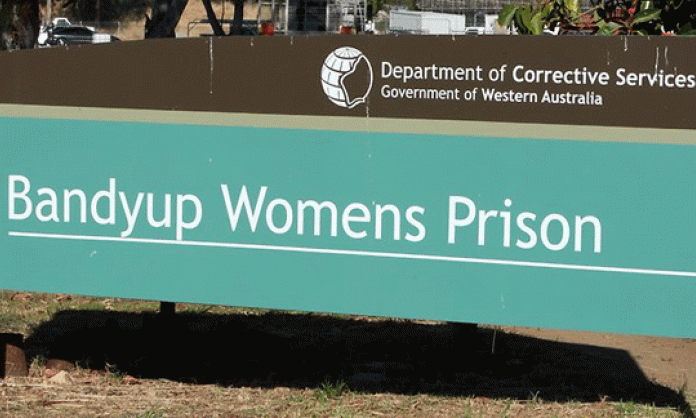A 50-year-old woman died in a Perth prison on 16 June. The woman hanged herself in the shower block of the notorious Bandyup Women’s Prison, in the city’s north-east.
Hers is the fourth death in custody in Western Australia in the past 12 months. Marc Newhouse, from the Deaths in Custody Watch Committee WA (DICWC) and Bandyup Action Group, isn’t surprised.
“This is not new”, Newhouse told Red Flag. “In 2000 we sent out a letter to every WA politician about the overcrowding in the prisons here. It’s an ongoing issue, and it speaks volumes about how the state views women who find themselves in prison.”
In 2014, the inspector of custodial services, Neil Morgan, released a report describing Bandyup as the “hardest and most neglected prison in the state”. The prison has a stated capacity of 183. In the first week of February, the ABC reported that there were 340 women at the facility. More than a third of these women were on remand.
Prison authorities have estimated that Bandyup will hold 450 inmates by mid-2016. It has installed double bunks in most cells to cram in more prisoners. Prisoner advocates point toward overcrowding as a key cause of serious problems in Bandyup and the WA prison system more widely.
“How many deaths are acceptable to the government before change happens?” Newhouse asked in a statement released by DICWC. The Department of Corrective Services has made no formal statement about the latest death.
Bandyup Action Group has called on the state government to release all women held in prison for fine default and other minor offences, and to release minimum security prisoners to home detention, or parole, where possible.
Figures released by the state opposition in November 2014 showed that the number of Aboriginal women jailed for defaulting on fines had increased from 33 to 223 between 2008 and 2014. One in six Aboriginal people in prison in WA were there because they had not paid fines.
In August 2014, 22-year-old Yamatji woman Julieka Dhu died in a South Hedland watch-house within three days of her arrest and detention over unpaid fines.
The government shows no signs of pulling back from its jail for fines policy. It is converting part of Hakea men’s prison to accommodate the growing female prison population. The refurbishment will not be ready until the end of 2016 at the earliest.
Newhouse told the Guardian in April, “We hope it will not take a death in Bandyup before the government acts on the numerous suggestions, reports and recommendations on women’s imprisonment in WA”. For the latest victim of the WA injustice system, it’s already too late.




